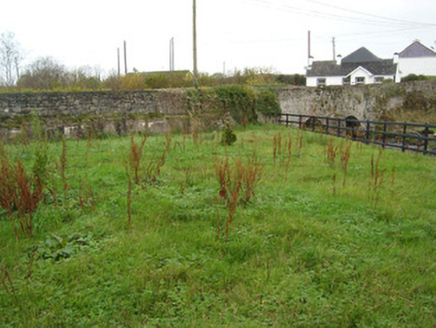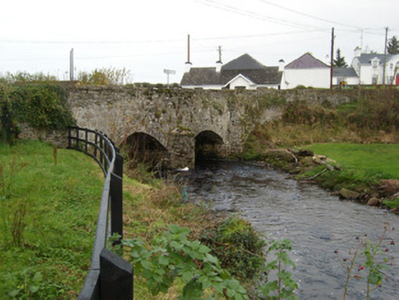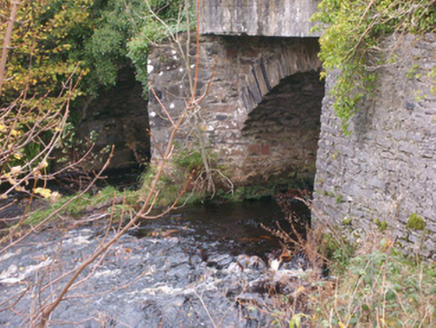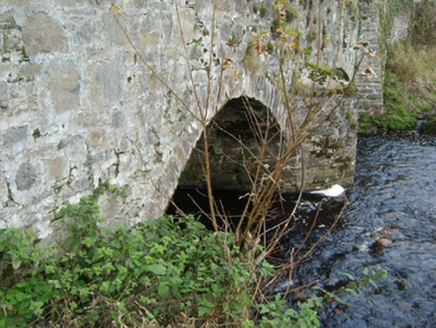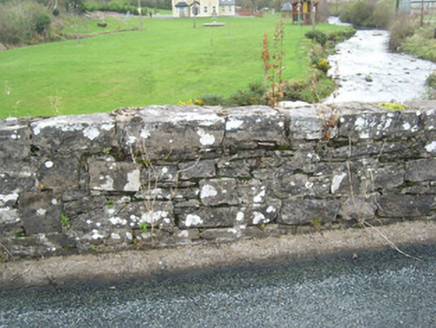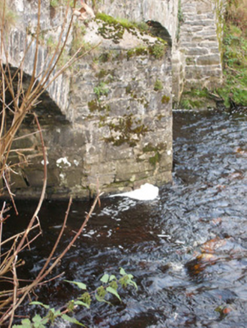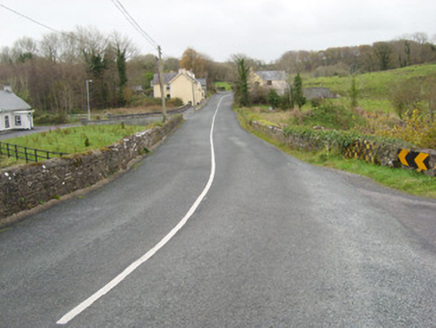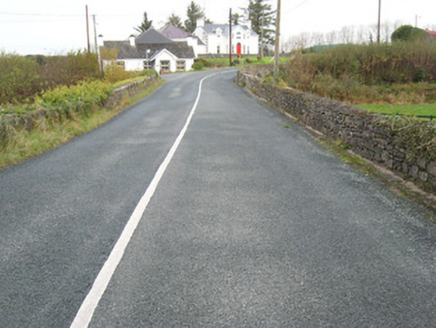Survey Data
Reg No
40909928
Rating
Regional
Categories of Special Interest
Architectural, Technical
Original Use
Bridge
In Use As
Bridge
Date
1760 - 1800
Coordinates
192786, 371870
Date Recorded
13/11/2007
Date Updated
--/--/--
Description
Double-arched bridge carrying road over the Ballintra River, built c. 1780, having V-profile rubble stone cutwater to central pier. Possibly containing earlier fabric. Widened to the upstream side (east). Shallow segmental-headed arches having roughly dressed stone voussoirs; rubble stone construction to arch barrels with projecting stones at arch springing point. Rubble stone construction to spandrels, abutments and to parapets; concrete coping in places over parapets. Rubble stone wing walls to either side, that to the south-west stepping out from the profile of the bridge. Tarmacadam deck. Located to north of Ballintra.
Appraisal
Despite some alterations and the widening of the deck to one side, this simple but appealing bridge retains much its early character and form, and is an appealing feature in the rural landscape to the north of Ballintra. This bridge robustly-constructed in roughly squared local rubble stone masonry, and its continued survival stands as testament to the quality of its original construction, and of the skill of the masons involved. The form of the arches, and the rubble stone construction to the cutwater, suggests that this bridge may be of considerable antiquity. The name ‘Bridgetown’ also hints at considerable antiquity, or that this bridge occupies the site (or is close to the site) of an earlier structure. This bridge may have been built or altered during the late-eighteenth century, a period that saw a great deal of road and bridge-building in Ireland, particularly by the Grand Juries (the forerunners of the County Councils). A number of bridges in this part of Donegal were built c. 1770, including Laghy Bridge, which suggests it may have been built as part of a programme of bridge building around this time (probably to carry the Dublin/Sligo to Derry mail coach road). This bridge is a notable addition to the built heritage of the local area, and is an appealing feature in the rural landscape to the north of Ballintra.
